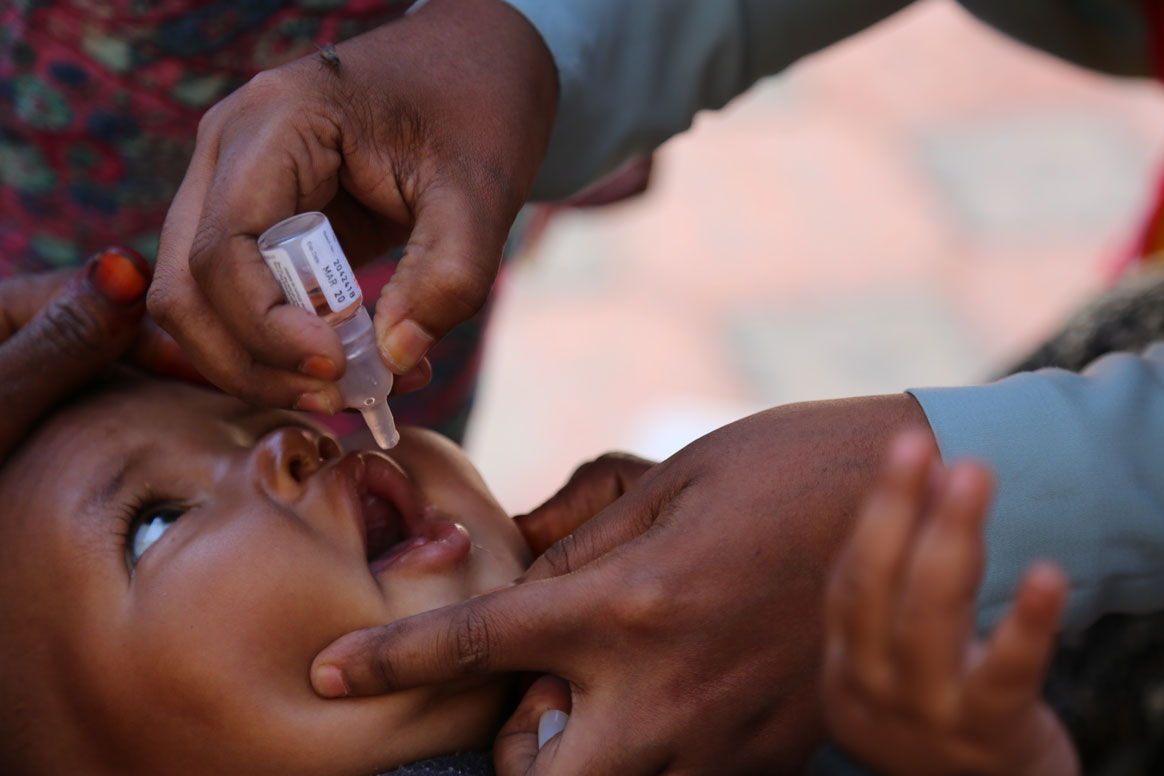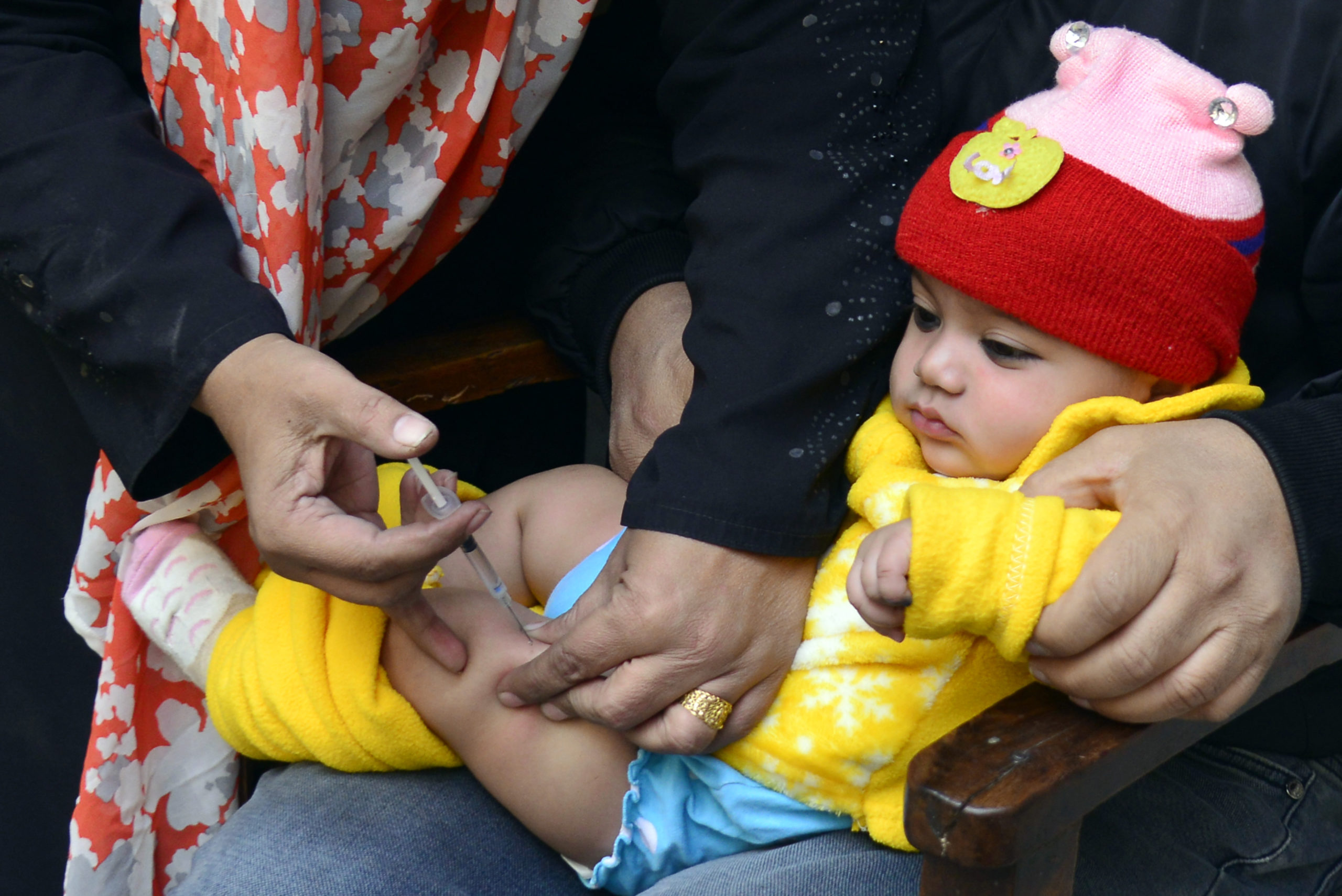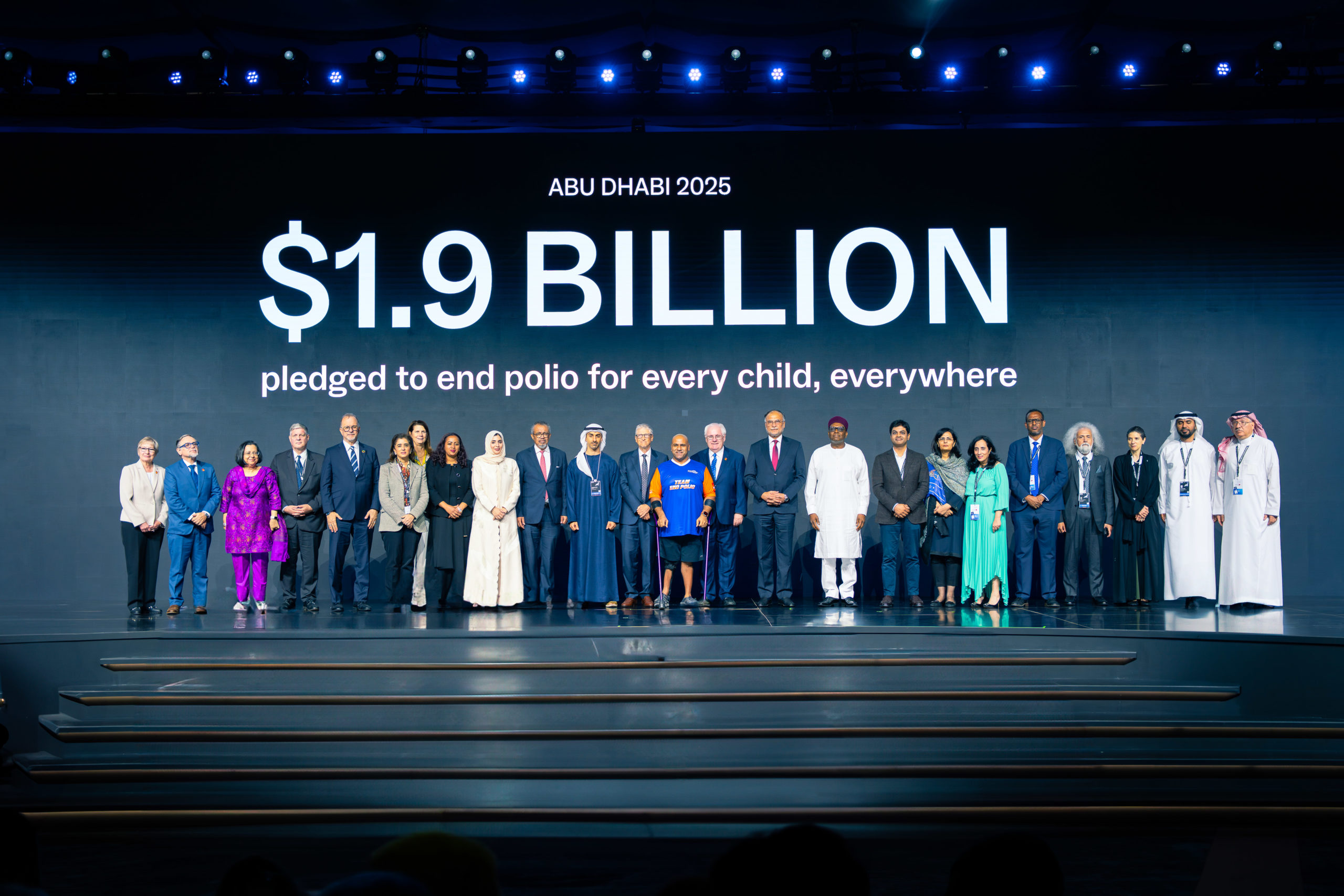
G20 Health Ministers met in Okayama, Japan, on 19 and 20 October 2019 to address major global health issues in order to pave the way towards a more inclusive and sustainable world, as envisioned in the 2030 Agenda for Sustainable Development.
Ministers put a strong emphasis on ending polio in the resulting declaration, reaffirming their “commitment to eradicate polio”, and recognizing the remaining challenges.
Ministers welcomed next month’s pledging event. With the support of G20 members and other important global donors, the Global Polio Eradication Initiative aims to successfully raise funds to overcome the remaining challenges that face the world as we work to end polio. The pledging event will be generously hosted by the UAE and His Highness Sheikh Mohamed bin Zayed Al Nahyan, Crown Prince of the Emirate of Abu Dhabi, as part of the Reaching the Last Mile Forum on 19 November 2019, and intends to secure the financial commitments needed for the programme to finish the job.
Ministers noted, “We are concerned with the rising number of vaccine-derived polio outbreaks. We call for a strong cross-border cooperation and strict implementation of vaccine requirements for travelers as specified in the International Health Regulations (IHR, 2005).”
The polio programme is currently responding to vaccine-derived poliovirus outbreaks in 18 countries. The encouragements of the G20 Health Ministers regarding the pledging event, IHR implementation and cross-border collaboration are welcomed as part of measures to ensure high quality comprehensive outbreak response and the ability of the programme to eradicate the virus.
In addition, Ministers expressed support for “the efforts of the Global Polio Eradication Initiative (GPEI), Gavi, the Vaccine Alliance (Gavi), WHO, UNICEF, and other stakeholders in strengthening routine and supplemental immunization,” and highlighted the “leadership role of WHO”. This year, Gavi has joined the Polio Oversight Board, becoming the sixth partner of the initiative. Ministers referred to the importance of “the transition of relevant polio assets” to other health programmes, a process that will be strengthened by Gavi’s partnership.
Polio eradication has an important role to play in the implementation of other global health goals. Considering this broader context, Ministers recognized that “high quality and safe primary health care including access to vaccination is a cornerstone for UHC”. Ministers noted, “We recognize that immunization is one of the most cost-effective health investments with proven strategies that make it accessible to all segments of the population with an emphasis on women and girls, the most hard-to-reach as well as the vulnerable and marginalized populations. We express our concern about vaccine hesitancy as mentioned in the WHO’s Ten threats to global health in 2019.”
Vaccination is the only way to eradicate polio and the GPEI is working tirelessly in some of the most challenging contexts to ensure all children, boys and girls, regardless of where they live, have access to life-saving vaccines.
This important statement from G20 Ministers of Health represents a continuation of the strong historical political support for polio eradication from both the G7 and the G20, at the highest levels.
The statement also follows the reaffirmation of support for polio eradication by G20 health leaders during their June 2019 summit. In this meeting, they discussed major challenges facing the world and once more communicated that “we reaffirm our commitment to eradicate polio”.
In 2020, Saudi Arabia will hold the presidency of the G20 and the US Government will hold the Presidency of the G7.
The Government of Japan, current host of the G20, is committed to the eradication of polio, providing US$ 563 million in grants to the GPEI since 1988.



